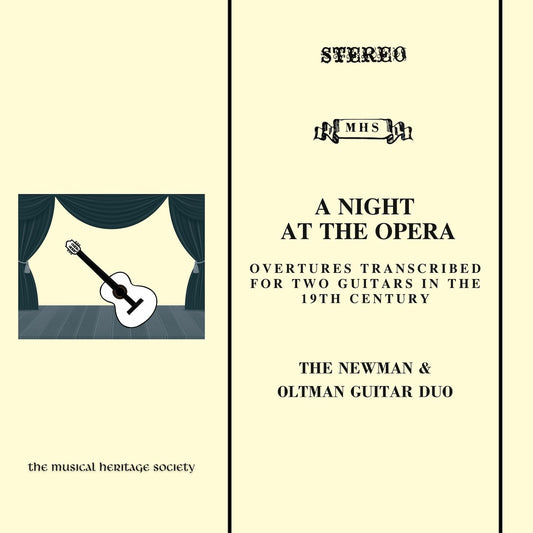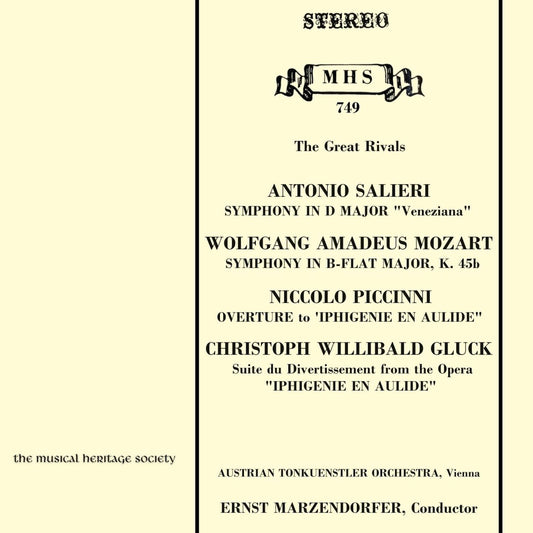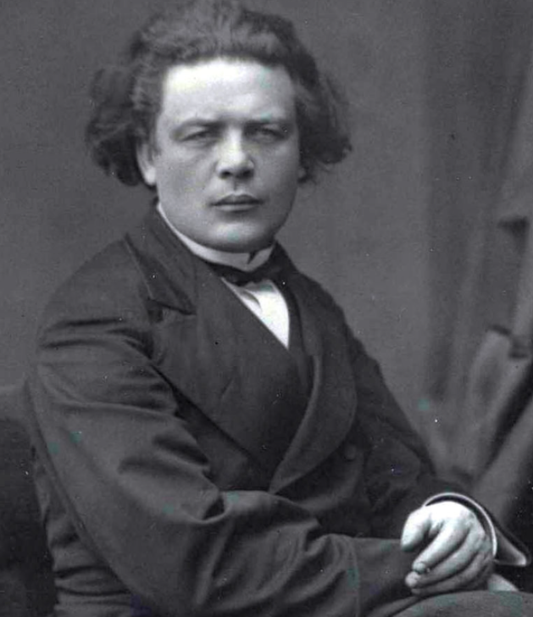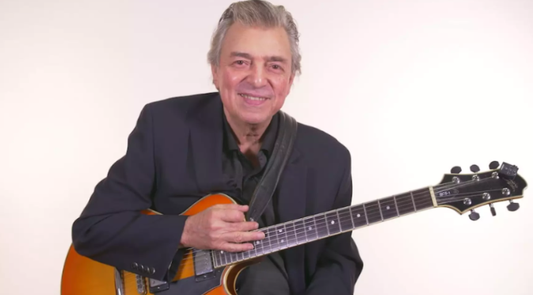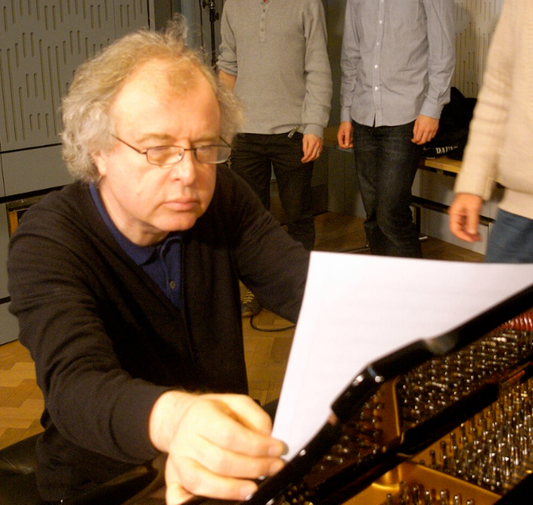Collection: NICCOLO PICCINNI (1728-1800)
Niccolò Piccinni stands as a pivotal yet often somewhat overshadowed figure in 18th-century music, an immensely gifted and prolific Italian composer primarily celebrated for his contributions to opera buffa, who later found himself unwillingly thrust into the center of one of classical music's most famous aesthetic battles.
Born in Bari, Kingdom of Naples, on January 16, 1728, Piccinni displayed musical aptitude early on. Despite initial paternal resistance (his father, also a musician, perhaps feared the precariousness of the profession), his talent was undeniable. He was eventually sent to study at the prestigious Sant'Onofrio Conservatory in Naples, the vibrant heart of Italian opera. There, he honed his craft under the guidance of leading figures like Leonardo Leo and Francesco Durante, absorbing the Neapolitan school's emphasis on elegant melody, clear textures, and vocal brilliance.
Piccinni’s rise was swift. His early operas met with success in Naples, but his breakthrough came in Rome in 1760 with La Cecchina, ossia La buona figliuola (The Good-Natured Girl). Based on Samuel Richardson's novel Pamela, this opera buffa took Europe by storm. Its charm lay in its blend of comic situations, touching sentimentality (a hallmark Piccinni excelled at), relatable characters, and, above all, its stream of effortlessly beautiful and memorable melodies. La Cecchina became one of the most popular operas of the century, cementing Piccinni's reputation as a leading composer.
For the next fifteen years, Piccinni reigned supreme in Italy, producing a staggering number of works (estimates range from over 100 to potentially 300 compositions, including operas, oratorios, and sacred music). He demonstrated mastery not only in comedy but also in opera seria, showcasing his versatility and solidifying his position as the dominant force in Italian opera after the death of Jommelli. His style was characterized by melodic grace, skillful orchestration (though subordinate to the voice), well-crafted ensembles, and an innate understanding of vocal possibilities.
In 1776, Piccinni's life took a dramatic turn when he accepted an invitation from Queen Marie Antoinette to move to Paris. This move placed him directly into a brewing cultural conflict. The Parisian operatic scene was deeply divided between supporters of the traditional Italian style, emphasizing melody and vocal agility, and the proponents of Christoph Willibald Gluck's reforms. Gluck sought to subordinate music to drama, increase the orchestra's role, simplify vocal lines for expressive impact, and create a more integrated, dramatically coherent form of opera.
Upon Piccinni's arrival, the partisans of Italian opera immediately championed him as their standard-bearer against Gluck, igniting the famous "Gluckist-Piccinnist quarrel." This intense rivalry, fought fiercely in salons, pamphlets, and the press, was less about the composers themselves (who reportedly held mutual respect) and more about competing national styles and aesthetic philosophies. Piccinni, essentially a modest man caught in the crossfire, was pressured to prove the worth of the Italian tradition. He was commissioned to write French operas, including Roland (1778) and famously, Iphigénie en Tauride (1781), setting the same libretto that Gluck had triumphantly premiered in 1779. While Gluck's starkly dramatic version is generally considered the more revolutionary and enduring masterpiece, Piccinni's setting also achieved considerable success, demonstrating his ability to adapt his style to French tastes. His French opera Didon (1783) was perhaps his greatest Parisian triumph.
Despite his successes, the French Revolution severely disrupted Piccinni's career. His royal patronage vanished, and suspected royalist sympathies led to difficulties, possibly even a brief period of house arrest. He returned to Naples in 1791 but found the political climate there equally unstable. Eventually, he made his way back to Paris in 1798, where Napoleon offered him some support. However, his health was failing, and his popularity had waned.
Niccolò Piccinni died in Passy, near Paris, on May 7, 1800. Though overshadowed in historical narratives by Gluck's more forward-looking reforms, Piccinni was a composer of immense talent and significance. He was a master melodist, a prolific craftsman, and the leading figure of Italian opera in his prime. His work, particularly La Cecchina, represents the pinnacle of mid-18th-century opera buffa, and his unwilling participation in the Parisian operatic wars highlights a crucial turning point in the history of musical drama. His music remains a testament to the enduring appeal of Italianate grace, elegance, and vocal beauty.

